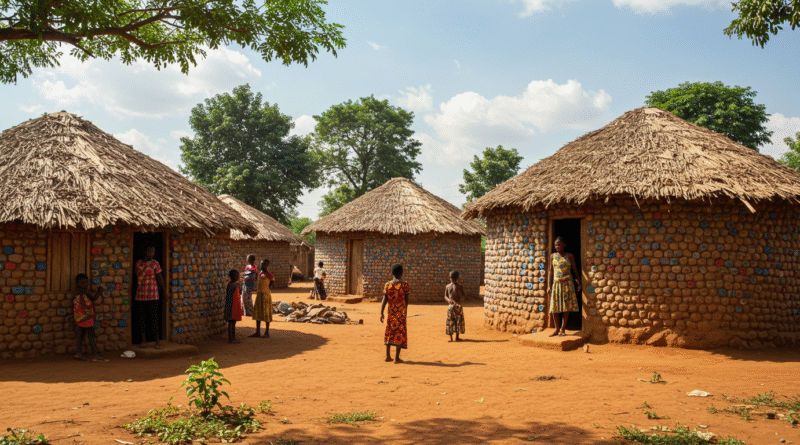When Plastic Turns to Shelter: The Rise of Bottle Homes in South-East Nigeria
Plastic bottle homes in Nigeria are reshaping housing in the South-East as rent prices soar. In the South-East of Nigeria, families are living through a quiet housing revolution. As plastic bottle homes in Nigeria gain attention, families are finding relief from impossible rent hikes.
What once felt like an environmental experiment has now become a survival strategy. From Enugu to Onitsha, rents have soared beyond reach, forcing residents to seek cheaper, alternative shelter. The story of eco-friendly housing in Nigeria is no longer about luxury sustainability projects. It is about ordinary people, resourceful builders, and a housing crisis that demands creativity.
Rents Up, Walls of Bottles Rise
In cities like Awka and Abakaliki, a three-bedroom flat that once rented for ₦250,000 a year now costs anywhere between ₦750,000 and ₦1.3 million. For a civil servant or young family, the numbers simply don’t add up. And so, communities have turned to innovation. Discarded bottles, once littering gutters and waterways, are now filled with sand and stacked into strong, insulated walls.
Residents describe these homes as cooler in the blistering heat, quieter against city noise, and sturdier than expected. What began as an experiment has now become a practical refuge. Here, affordable housing solutions in Nigeria are not coming from developers or government schemes but from the ground up, built bottle by bottle, with determination and resilience.
Effect of plastic bottle homes in Nigeria’s Real Estate
The rise of sustainable homes in Nigeria carries ripple effects across the nation’s real estate, its environment, and the lives of everyday people.
For the real estate market, the message is clear: trust and pricing are being tested. If bottle homes continue to spread, conventional housing could lose its monopoly, forcing landlords and developers to rethink supply, demand, and regulation. Already, whispers within the property sector suggest investors are curious, if not cautious, about what this trend means for long-term profitability.
Effect of plastic bottle homes on the Nigerian environment
The environmental story is equally striking. Every bottle pressed into a wall is one less clogging drainage channels, one less floating down the Niger, one less feeding a landfill. Waste is being transformed into shelter. Still, unanswered questions remain: how long before plastic begins to degrade, and what are the consequences of sourcing vast amounts of sand?
Effect of Plastic Bottle Homes on the Nigerian Economy
On the economic front, the soaring cost of rent reflects a deeper structural failure in Nigeria’s housing policy. Bottle homes, though affordable, are a stopgap, a reminder that when formal systems lag, innovation fills the void. Yet, for families, the benefits are immediate. A bottle house means freed-up income for food, schooling, and healthcare. For local builders, it has created a new stream of jobs and skill development, one wall at a time.
And for the ordinary Nigerian, there is a dignity in having a home, no matter how unconventional its structure. Choosing a bottle at home is often not about preference but about necessity. Yet, those who live in them say they bring comfort, safety, and pride.
The Future of Shelter in the South-East
Plastic bottle homes will not replace luxury estates or high-rise towers. But they send a critical message: when formal housing fails, people innovate. For policymakers, the challenge is to ensure that these homes are treated not as oddities but as part of Nigeria’s housing ecosystem. With proper safety standards and community support, they could represent more than survival; they could become a blueprint for sustainable living.
Related News
Nigeria Real Estate Data Crisis
Lagos Property Demolition Crisis
Enugu Real Estate Takes Off with Aviation Boom
Conclusion
In the end, this is not just about bottles. It is about resilience. It is about survival. And it is about building futures, one wall at a time.

